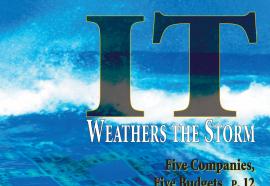Perspective
FERC's Standard Market Design: Too Detailed To Evolve
The Federal Energy Regulatory Commission's standard market design (SMD) proposal states objectives that are important and supportable, both theoretically and empirically. Uniform rules and business practices reduce transaction costs and limit opportunities for institutional arbitrage, increase the extent of the market, and increase market liquidity and investment.


